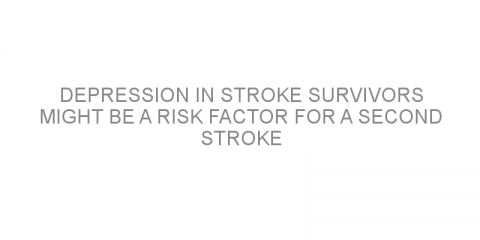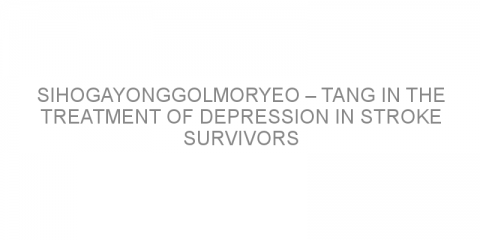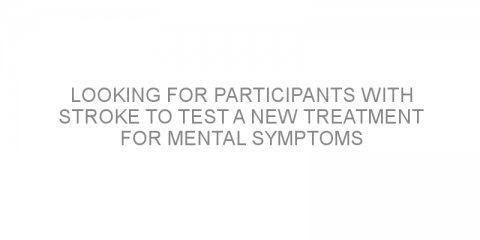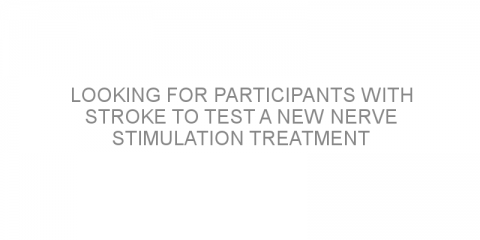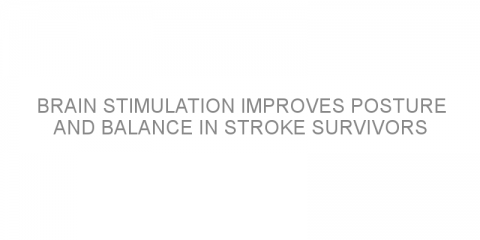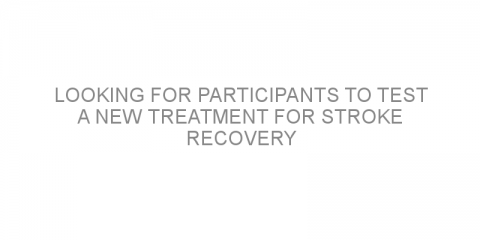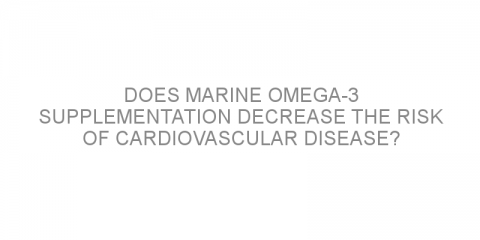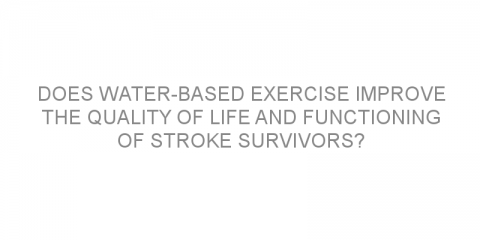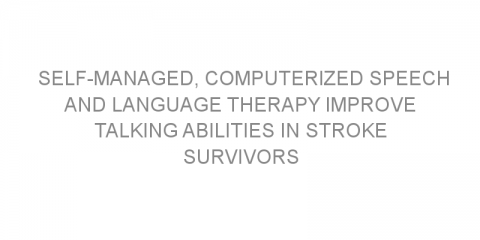In a nutshell This study investigated whether depression after stroke is a risk factor for a second stroke. Researchers suggested that stroke survivors with depression may be at a higher risk for a second stroke. Some background A stroke happens when the blood flow to the brain is blocked. The brain cells stop receiving oxygen and begin to die. The...
Read MoreStroke Posts on Medivizor
Sihogayonggolmoryeo – tang in the treatment of depression in stroke survivors
In a nutshell This study investigated the effectiveness and safety of Sihogayonggolmoryeo – tang (SGYMT) in the treatment of depression after stroke. Researchers suggested that SGYMT might improve the outcomes of these patients. Some background Stroke is a brain condition caused by the blockage of blood flow to the brain. The brain cells...
Read MoreLooking for participants with stroke to test a new treatment for mental symptoms
In a nutshell This trial is examining the effectiveness of a new behavioral treatment for patients with stroke. The main outcome to be measured will be participant satisfaction. This study is being conducted in New York, US. The details A stroke consists of a blockage of the blood flow to the brain by a blood clot (80% of the cases). This can...
Read MoreLooking for participants with stroke to test a new nerve stimulation treatment
In a nutshell This trial is examining a new treatment involving nerve stimulation for stroke survivors with arm/hand paralysis. The main outcome to be measured will be the change in wrist movement. This study is being conducted in New York, US. The details Stroke is the fifth leading cause of death in the US. A common side effect of stroke is weakness...
Read MoreBrain stimulation improves posture and balance in stroke survivors
In a nutshell This study reviewed the effectiveness of brain stimulation (BS) in treating symptoms after stroke. Researchers suggested that BS is associated with improved recovery in these patients. Some background A stroke is caused by a blood cut-off to the brain. This is followed by the death of brain cells that stopped receiving oxygen. The...
Read MoreLooking for participants to test a new treatment for stroke recovery
In a nutshell This trial is examining the effectiveness of a new treatment called ischemic conditioning for the recovery of stroke survivors. The main outcome to be measured will be the change in walking speed. This trial will be conducted in Wisconsin, US. The details A stroke happens when the blood flow to the brain is cut off. The brain cells stop...
Read MoreDoes marine omega-3 supplementation decrease the risk of cardiovascular disease?
In a nutshell This study investigated whether marine omega-3 supplementation is associated with a reduction in the risk of cardiovascular disease (CVD). Researchers suggested that omega-3 is associated with a risk reduction of CVD. Some background CVD is the leading cause of death for both men and women in the US. It refers to conditions that involve...
Read MoreDoes water-based exercise improve the quality of life and functioning of stroke survivors?
In a nutshell This study investigated the effects of water-based exercise (WBE) in the treatment of stroke survivors. Researchers suggested that WBE significantly improves the treatment and the quality of life of these patients. Some background A stroke happens when the blood flow to the brain is cut off. These cells stop receiving oxygen and begin to...
Read MoreLooking for participants with chronic stroke to test a device-assisted treatment
In a nutshell This study is examining the effectiveness of a device-assisted practice of activities of daily living (ADL) to treat disability in stroke survivors. The main outcome to be measured will be the change in movement of the affected arm/hand. This study is being conducted in Illinois, US. The details A stroke happens when the blood flow to...
Read MoreSelf-managed, computerized speech and language therapy improve talking abilities in stroke survivors
In a nutshell This study investigated the effectiveness of home-based computerized speech and language therapy (CSLT) in patients with speech problems after stroke. Researchers suggested that CSLT resulted in an improvement in word-finding for these patients. Some background A stroke happens when blood flow to the brain is cut-off. This can be due to...
Read MoreThe effects of antiplatelet therapy on patients with cerebral hemorrhagic stroke
In a nutshell This study investigated the effects of antiplatelet therapy (APT) on patients with hemorrhagic stroke. Researchers suggested that there is a small increase in the risk of a second stroke. Some background A hemorrhagic stroke happens when blood from an artery bleeds into the brain. Pressure from the leaked blood damages brain cells. The...
Read MoreVirtual reality rehabilitation system in the treatment of speech problems in stroke survivors
In a nutshell This study investigated the effectiveness of a virtual reality rehabilitation system (VRRS) to treat aphasia (language impairment) in patients with stroke. Researchers suggested that VRRS is a safe option of treatment for stroke survivors after their discharge. Some background A stroke happens when the blood flow to the brain is cut-off....
Read More
